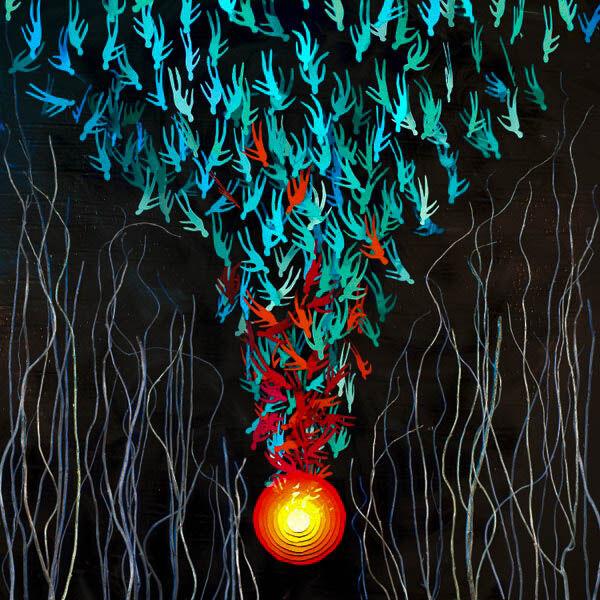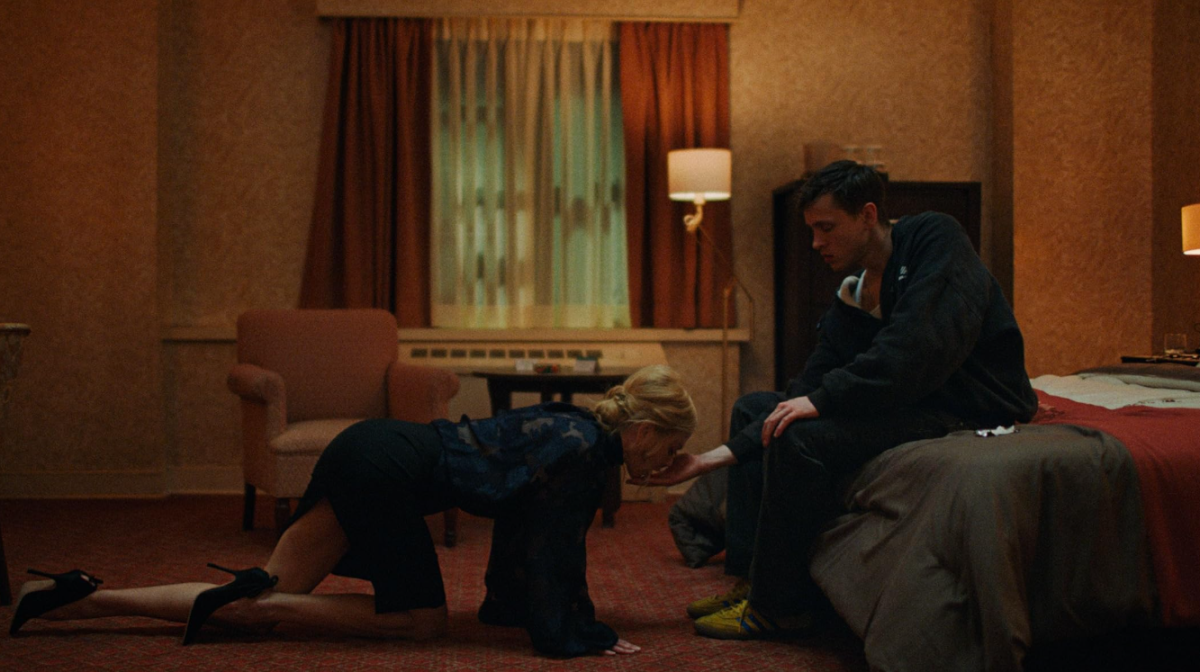It is only apt that 2020, the most tumultuous year in recent memory, sees the return of Bright Eyes in top form and ready to take on the world’s current existential crisis. “Down in the Weeds, Where the World Once Was” is appropriately ripe with apocalyptic imagery with Conor Oberst’s signature shaky yet urgent delivery and a vibrant instrumental palette recalling the band’s 2007 album “Cassadaga.” “Down in the Weeds” opens with a ragtime fever dream of a track, in which a woman is speaking Spanish, welcoming us to our “most vivid nightmares,” setting the tone for the rest of the record.
The first proper track of the album, “Dance and Sing,” opens with the line, “Got to keep on going like it ain’t the end,” invoking a sense of finality. There is a clear through line in this track about embracing the end with open arms, not out of some sort of misplaced nihilism, but instead with stoic maturity. The swelling orchestral arrangements are beautiful and rousing. In fact, the whole album plays like a warm welcome to a party celebrating the end of the world.
“Down in the Weeds” isn’t macabre, overwrought or ironic in its exploration of endings. When Oberst sings, “Life’s a solitary song, it sounds so sweet and then it’s gone,” his sincerity cuts like a hot knife. Oberst’s songwriting has always been mature and fleshed-out, but his storytelling has evolved in that he can make the particular combination of yearning and comfort in dreaming of his ex-wife’s face seem universal.
This pattern of seemingly specific vignettes that express the most ubiquitous of human emotions continues in “Stairwell Song,” a lovely track about two lovers enamored with each other. The song is a traditionally romantic, but ultimately bittersweet meditation on the plight of two lost souls.
Perhaps the most poignant song on the album is “Tilt-A-Whirl,” in which Oberst ruminates on his family, and how loved ones can suddenly be gone. His desperation to see his deceased brother is compared to sleep paralysis (“I couldn’t move, I couldn’t scream”). “Hot Car in the Sun” is a stark, stripped down account of depression. The song has a simple piano chord progression, emphasizing the emotional emptiness. It is in moments like this where it is clear that Bright Eyes has matured both musically and lyrically, understanding when to go big and when to restrain.
In the following track, “Forced Convalescence,” the narrator is forced to be alone with himself. The song uses Oberst’s account of being bedridden as a backdrop to again explore a kind of desperate helplessness, something that is shockingly pertinent to the world’s current state. “Down in the Weeds” connects these various accounts of loneliness and “forced convalescence” to effectively induce the healing process.
It isn’t the kind of record meant for wallowing. It is honest, not self-pitying. Bright Eyes has given us another earnest soundtrack to dance and sing our worries away, even if we can’t change them.
Bright Eyes’ latest album finds comfort in communal loneliness
September 3, 2020

Photo by Creative Commons
The album “Down in the Weeds, Where the World Once Was” by Bright Eyes was released on August 21.
0
Donate to The Battalion
$810
$3500
Contributed
Our Goal
Your donation will support the student journalists of Texas A&M University - College Station. Your contribution will allow us to purchase equipment and cover our annual website hosting costs, in addition to paying freelance staffers for their work, travel costs for coverage and more!
More to Discover















